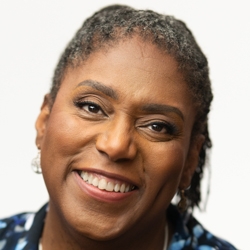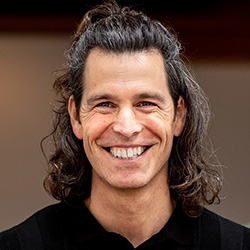

Search Results: race
-
Don’t know how to effectively work through differences with others in your organization? You are not alone… Like most of us, you simply lack the training and skills – and that’s what you’ll acquire listening to this course recording. Join Miki and learn specific tools and tips that work – for everyone!
-
Transforming organizational culture requires attention and change at the systemic level. Learn which systems are crucial for any organization to establish and clarify whether that organization is collaborative or not, and then learn how to create and strengthen a collaborative organization.
-
In this excerpt from Roxy Manning's 2019 Social Change session at the NVCfest, she explores the application of Nonviolent Communication (NVC) to address both immediate conflicts and broader systemic issues. She emphasizes the importance of intervening at multiple levels, from stopping harmful behavior in the moment to driving long-term societal change.
-
Join Roxy Manning for a provocative fishbowl discussion about how privilege and lack of privilege affect people of color.
-
Join Jeff Brown for a provocative fishbowl discussion about how privilege and lack of privilege white people.
-
Giving feedback across a differences in culture, race, and power isn't something that we have to do -- but we can choose to do it for our own liberation, if we want. And if we choose that path, impact delivered well can invite caring for all needs and increase capacity to learn. This is the exacting, rigorous work of speaking about impact without attributing anything to the person whose actions resulted in the impact. Read on for part 1 of 2.
-
When someone expresses upset about our actions, and we focus on our intention being seen and understood (e.g. "I didn’t mean to hurt you”) it doesn't support the speaker in being heard more deeply with care. Here we'll explore this dynamic in a way that supports more clarity and the possibility of greater personal liberation. Read on for more.
-
When supporting someone with less privilege, first check with them how you can support. If you're reacting more strongly to their undesirable experience than they are, this then shifts the dynamic so that they're setting aside what they want to attend to your feelings and needs - this may become work that they didn't sign up for. Read on for what to do instead to support more equity.
-
How do you navigate tension around honoring all aspects of your experience, as you express yourself within your community, and seek to take action that supports your vision for yourself and your people? How do you attend to your self-determination while honoring others’ path? Read on for an example of how the authors navigated this in response to tensions in NVC trainer community that included requests for her to self silence.
-
Ask the Trainer: Exploring how unconscious motivations influence the needs we identify and express.
-
Ask the Trainer: "In trainings I say our jackals are thoughts and now I've come to wonder if all thoughts are jackals...?"
-
If you're interested in learning specifically how and what you can do to live compassionately – with plenty of hands-on practice time – this course is for you. Observe actual demonstrations of Robert guiding participants through the transformational territory of healing and integration.
-
If you’ve ever dreaded attending a meeting – or watched in dismay as your group collapses into conflict – know that a methodology known as Convergent Facilitation offers you possible solutions. It’s based on one simple experience: that people come together at the level of their underlying principles, needs, aspirations, and dreams, not at the level of their surface positions.
Convergent Facilitation is a highly efficient decision-making process developed by Miki Kashtan from the principles of Nonviolent Communication. It enables you to look beneath the surface and find the essence of what’s important to different stakeholders, and bring it together into one set of principles that lead to proposals and ultimately decisions. As a result, it readily produces solutions and decisions that everyone can embrace.
-
Whether its pandemics, climate change, damage to the environment or other massive challenges that humanity faces, what are we to do if we can't agree on even the most basic information and knowledge? From empathic understanding we can focus on shared, universal human needs (where there is no conflict or disagreement) underlying our perceptions, and feelings. Then we can see if there are ways we can agree on to meet those needs.
-
If you’ve ever dreaded attending a meeting – or watched in dismay as your group collapses into conflict – know that a methodology known as Convergent Facilitation offers you possible solutions.
It’s based on one simple experience: that people come together at the level of their underlying principles, needs, aspirations, and dreams, not at the level of their surface positions.
Convergent Facilitation is a highly efficient decision-making process developed by Miki Kashtan from the principles of Nonviolent Communication. It enables you to look beneath the surface and find the essence of what’s important to different stakeholders, and bring it together into one set of principles that lead to proposals and ultimately decisions. As a result, it readily produces solutions and decisions that everyone can embrace.
-
- Learn how to transform NVC into a tool for systemic awareness and healing
- Examine the influence of difference, and uncover pathways that strengthen its capacity
- Learn to receive and offer feedback on impact in situations fraught with power differences
- Explore specific ways in which NVC systemically supports the full flowering of humanity
- Delve into the dynamics of cultural differences, and discover how NVC can systemically contribute to a liberation perspective
-
2020 has added three major global crises to our long and painful list of ongoing challenges:
- Public health crisis emerging from the Coronavirus infecting humans;
- Governance crisis manifesting especially in global protests against police brutality and governments more generally; and
- Economic crisis unfolding from responses to the pandemic.
And as a result, many of us who share NVC with others have been feeling a growing unease about our roles. I have heard from quite a few who want to go beyond using NVC primarily as a personal growth tool within the market economy, and often don't know how to do so. This course is designed to respond to this need by supporting anyone who shares NVC with others – regardless of experience or certification – in opening to the way systemic perspectives deepen and transform how we bring NVC to people, communities, and organizations.
-
Join Yoram Mosenzon in his 4 session course. It is designed to help you more fully integrate NVC values and language into your daily life. Plan on practicing Nonviolent Communication's Radical Honesty through demonstrations, role-playing, and exercises designed to help you more fully integrate NVC values and language into your daily life.
-
- Discern what is preventing your communication style from being effective
- Create a communication style that works
- Resolve everyday conflicts and misunderstandings
- Create a deeper sense of connection, trust, and cooperation
- Heal old wounds between you and others, as well as within yourself
- Be the leader and contributor you want to be in any situation
-

Quick Links
Subscription Preferences
Stay In Touch!
Looking for ways to keep up with NVC Academy news, get special offers, free resources, or words of inspiration? Here are five ways to stay engaged:
















